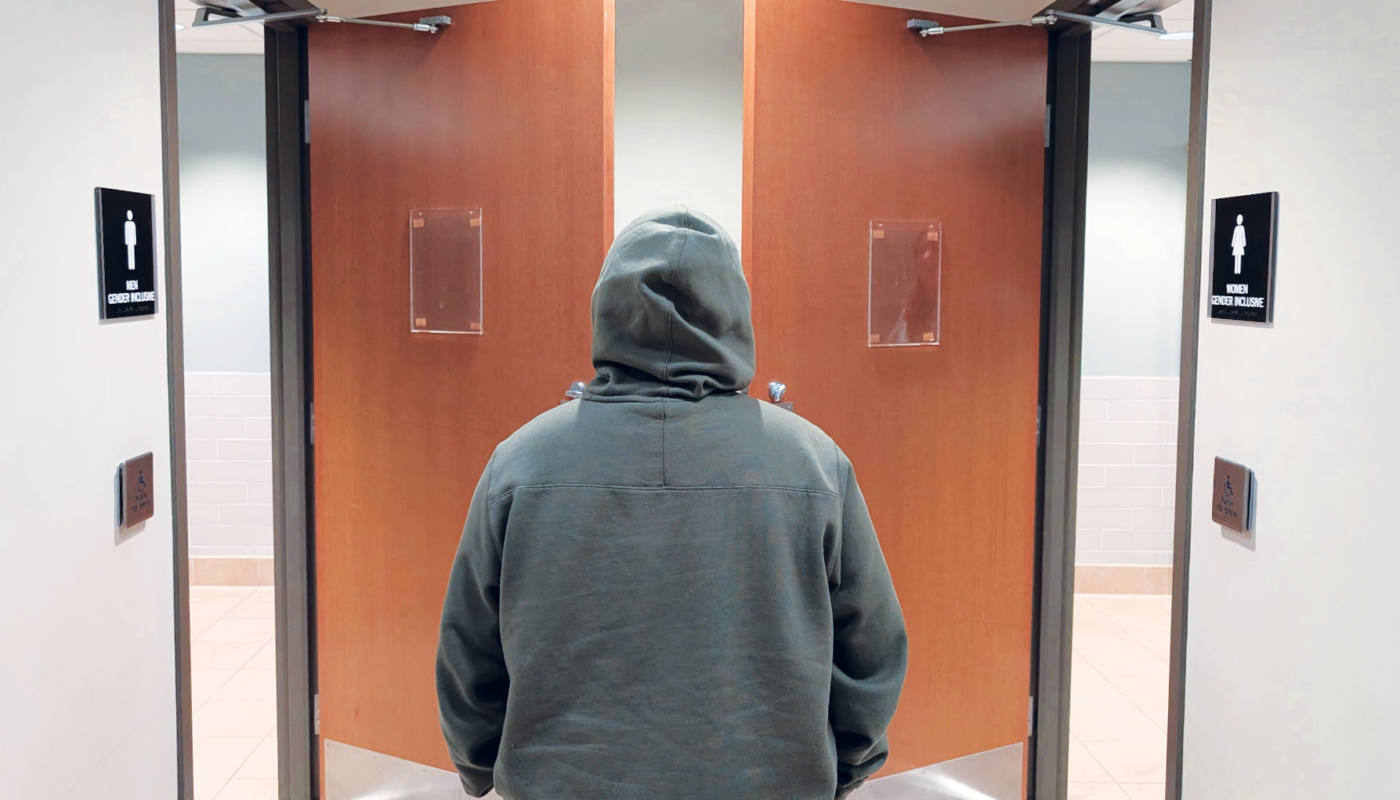Starting Feb. 25, 2025, all Ohio schools must “designate multi-occupancy restrooms, locker rooms, changing rooms, and shower rooms for exclusive use by male or female students based on their biological sex.”
The bill defines multi-occupancy spaces as “a restroom, locker room, changing room, or shower room that is accessible to multiple individuals at the same time.”
Stonewall Columbus is a community center located at 1160 N. High St. whose mission is to “increase visibility and acceptance” of members of the LGBTQ+ community.
The organization released a statement in response to the bill’s passing.
The statement reads, “By forcing individuals to use restrooms and facilities based solely on the sex listed on their birth certificate, this legislation perpetuates stigma, exclusion, and harm against some of the most vulnerable members of our community.”
The Stonewall statement also said Ohio Senate Bill 104 denies transgender and nonbinary individuals the right to authentically express themselves for fear of harassment and violence.
“Research has consistently shown that transgender individuals are far more likely to experience harm in public restrooms than to cause it, making the claims of safety used to justify this bill both unfounded and deeply harmful,” read the statement.
Beth Lear, a Republican Ohio House Representative from Galena and co-sponsor of the bill, said “We are grateful to the Governor [Mike DeWine] for doing what is right and what is best for all Ohio students in kindergarten through college. The Protect All Students Act will keep our children safe from exposure to the opposite sex while in private spaces.”
The language of the bill is expansive to include all institutions of learning, forcing private colleges like the university to comply with the bill.
Restrooms on the first floor of the Harry C. Moore Student Union and first floor of the Convergent Media Center were formerly called ‘Gender Inclusive,’ but have since been updated because “no institution of higher education shall construct, establish, or maintain a multioccupancy facility that is designated as nongendered, multigendered, or open to all genders.”
The bill also states that no members of the opposing sex are allowed to share overnight accommodations with each other, which will influence the university’s residential policies.
However, the bill does permit schools to establish “a policy providing accommodation[s] such as single-occupancy facilities or controlled use of faculty facilities at the request of a student due to special circumstances.”
University students disagree with the bill, calling it “detrimental” to education.
“Part of education is learning about people and your environment, not just class curriculum,” said Hannah Laubacker, a sophomore music education major. “Students should be able to pee where they are comfortable.”
Laubacker also said that legislation like this will intrude on students’ ability to focus on more important educational elements than where their classmates use the bathroom.
Legal scholars like Josh Hughes, counsel at Ogletree Deakins in Columbus, are expecting challenges against the bill.
He said the U.S. Court of Appeals for the Ninth Circuit temporarily blocked enforcement of an Idaho bill similar to Ohio Senate Bill 104.
Hughes also cited a bill passed in North Carolina that was ultimately struck down by a federal court in 2019 as setting precedent for challenges to come.
According to Hughes, opponents of the bill are saying that the bill violates Title IX of the Education Amendments of 1972 and the Equal Protection Clause of the Fourteenth Amendment to the U.S. Constitution.
“Concerns have been expressed that the law could lead to increased stigmatization and mental health challenges for these students,” said Hughes. “The law is discriminatory…and fails to recognize the rights and identities of transgender and nonbinary students.”
If schools choose not to comply with the bill, Ohio Attorney General Dave Yost said he would act “swiftly” with legal action.
After Yost read a Columbus Dispatch article about the Columbus City School Board meeting where board members weighed the implications of not complying with the bill, Yost wrote a letter to the board president.
According to the Columbus Dispatch, the letter reads, “compliance with Senate Bill 104 is not optional.”
The university released a statement Monday morning to alert the community of impending changes.
The email contained information about facilities not affected by the bill.
For example, “The legislation does not affect single-user facilities. Single user-facilities can be found at the following locations:
- Blackmore Library First floor restrooms
- Leonard Hall restrooms in the Conservatory of Music
- Saylor-Ackermann Lobby restroom
- Trinity Lutheran Seminary restrooms near the LeSage Room
- Trinity Lutheran Seminary restrooms across from rooms 106, 119, and 210
- Trinity Lutheran Seminary restroom within Room 225
- Saylor-Ackermann Pod Style restrooms and showers and Basement restroom (residents only)
- Schaaf Hall near Southwest Entrance Restroom and Schaaf Basement restroom (residents only)
- Cotterman Basement restroom (residents only)


